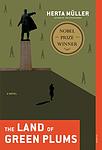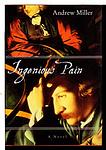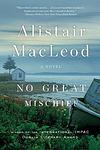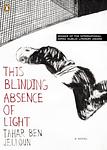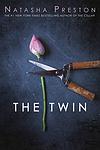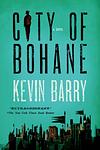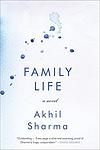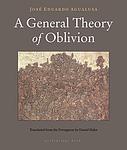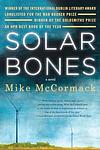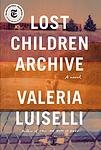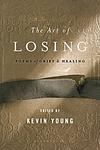International Dublin Literary Award
This is one of the 284 lists we use to generate our main The Greatest Books list.
-
Remembering Babylon by David Malouf
The novel explores the life of a young man who, after being shipwrecked, is raised by Aboriginals in 19th century Australia. After sixteen years, he attempts to reintegrate into European society, but is met with suspicion and hostility due to his adopted culture and lifestyle. The book delves into themes of identity, belonging, and the clash between Aboriginal and European cultures.
-
A Heart So White by Javier Marías
The novel delves into the complexities of relationships, secrets, and communication as the protagonist, a translator and interpreter, grapples with the mysterious suicide of his father's first wife and the pervasive silence surrounding it. Through his own marriage and his observations of others', he contemplates the unsaid and the power of words, both spoken and unspoken. The narrative weaves through time and memory, exploring the impact of the past on the present and the intricate ways in which people understand and misunderstand each other.
-
The Land Of Green Plums by Herta Müller
The novel is a poignant exploration of life under a repressive regime, following a group of young friends in Romania during the totalitarian rule of Nicolae Ceaușescu. Through the eyes of the narrator, a young woman with aspirations of freedom and self-expression, the story delves into the oppressive atmosphere of surveillance, fear, and betrayal that permeates their existence. As they struggle to maintain their integrity and hope amidst the dehumanizing forces of the state, the friends are inexorably drawn towards tragic outcomes, illustrating the devastating impact of living under constant oppression and the indomitable spirit that resists it.
-
Ingenious Pain by Andrew Miller
The book explores the life of James Dyer, a man born in 18th century England with a peculiar condition - he cannot feel physical pain. Despite this, Dyer's life is far from painless as he navigates through various experiences, from working as a sideshow attraction to becoming a surgeon. As he encounters love, loss, and the complexities of human existence, Dyer's inability to feel pain becomes both a blessing and a curse, leading him on a journey of self-discovery and ultimately questioning the true nature of pain and its role in shaping our lives.
-
Wide Open by Nicola Barker
"Wide Open" is a novel set on the Isle of Sheppey in Kent, England, where the lives of a disparate group of characters intersect in unexpected ways. The narrative explores themes of love, loss, and the search for identity amidst the backdrop of a bleak, coastal landscape. The characters, each struggling with their own personal demons and secrets, are drawn together by a series of strange events, leading to a climax that forces them to confront their pasts and the possibilities of human connection in a world that often seems indifferent to their desires and fears. The book is known for its dark humor, eccentric characters, and the evocative portrayal of its setting.
-
No Great Mischief by Alistair MacLeod
The novel delves into the complexities of family bonds, identity, and the enduring impact of heritage through the story of the MacDonald clan, whose roots trace back to 18th-century Scotland. As the protagonist reflects on his life, from his childhood in Cape Breton Island to the present, he grapples with the weight of his ancestry and the tragedies that have befallen his family. The narrative weaves together past and present, exploring how the characters' Scottish legacy shapes their experiences in the harsh landscape of Canada, and how the refrain "All of us are better when we're loved" captures the essence of their interconnectedness and resilience.
-
The Elementary Particles by Michel Houellebecq
"The Elementary Particles" is a provocative novel that explores the lives of two half-brothers, one a molecular biologist and the other a disenchanted teacher, against the backdrop of late 20th-century France. The narrative delves into their personal struggles and emotional turmoil, resulting from their dysfunctional upbringing by a self-absorbed, hedonistic mother. Throughout the novel, the author uses their stories to critique contemporary society, touching on themes such as sexual liberation, consumerism, and the decline of traditional values. The book also delves into the implications of scientific advancements, particularly in the field of molecular biology.
-
My Name is Red by Orhan Pamuk
Set in the late 16th century Ottoman Empire, this novel explores the conflict between East and West, tradition and innovation, through the lens of miniaturist painters. When a renowned artist is murdered, his colleagues must solve the mystery while grappling with the changes in their art brought about by the western Renaissance. This complex narrative intertwines love, art, religion, and power, offering a deep exploration of the struggles between old and new.
-
This Blinding Absence Of Light by Tahar Ben Jelloun
The novel delves into the harrowing experience of a man who, after participating in a failed coup, is sentenced to life imprisonment in a Moroccan desert concentration camp. In this hellish environment, he and his fellow inmates endure unimaginable suffering, with the narrative exploring themes of survival, hope, and the human spirit's resilience. Through the protagonist's eyes, the reader witnesses the brutality of his conditions, the struggle to maintain sanity in the face of relentless darkness, and the power of storytelling as a means of preserving one's identity and humanity amidst the most oppressive circumstances.
-
The Known World by Edward P. Jones
"The Known World" is a historical novel set in antebellum Virginia, exploring the complex relationships between slaves, free blacks, and whites. The story revolves around a black man who becomes a slave owner, his wife, and their slaves. It provides a unique perspective on the moral complexities and personal consequences of slavery, while also examining the intricate social hierarchy of the time. The narrative is filled with richly drawn characters, each with their own stories and struggles, offering a vivid portrayal of a little-known aspect of American history.
-
The Master by Colm Tóibín
"The Master" is a fictionalized biography of the renowned author Henry James, chronicling his life from 1895 to 1899. The narrative delves into James' personal life, his relationships, and his struggles with his craft. The book reveals his inner thoughts and feelings, his unfulfilled desires, and his deep-seated fears. It also explores his relationships with his family, friends, and some of the most prominent figures of his time. The narrative is a deep, introspective exploration of a complex, introverted character, and the world in which he lived.
-
Out Stealing Horses by Per Petterson
The novel is a poignant exploration of a man's relationship with his father and his own identity. Set in Norway, it follows the protagonist's decision to live in solitude after the death of his wife and sister. Through a series of flashbacks, he recalls his childhood, particularly the summer of 1948 when he lived with his father in the country. As he delves into his past, he uncovers his father's involvement in the resistance during World War II and the lasting impact it had on their relationship and his own life. The narrative intertwines the past and the present, reflecting on themes of loss, betrayal, and the complexity of human relationships.
-
De Niro's Game by Rawi Hage
The novel delves into the lives of two childhood friends navigating the treacherous landscape of war-torn Beirut. As the city crumbles under the weight of the Lebanese Civil War, the young men find themselves drawn into the violence and chaos that surrounds them. One chooses the path of emigration, seeking a new life abroad, while the other becomes embroiled in the militia warfare that dominates the streets. Their friendship is tested by the brutality of their environment, as they grapple with the moral complexities of survival, loyalty, and the devastating impact of conflict on the human spirit.
-
Man Gone Down by Michael Thomas
"Man Gone Down" by Michael Thomas is a novel about a middle-aged African American man who is struggling to keep his life together. The unnamed protagonist is a father of three who is trying to provide for his family while dealing with financial difficulties, marital problems, and his own personal demons. The story takes place over the course of four days as the protagonist tries to come up with a plan to save his family and himself from their current situation. Along the way, he reflects on his past and tries to come to terms with the choices he has made in his life.
-
The Twin by Gerbrand Bakker
The novel revolves around a middle-aged man who, after his twin brother's accidental death, is left to take care of the family farm and his ailing father in the Dutch countryside. Trapped by duty and familial expectations, he struggles with loneliness and the burden of an unfulfilled life. The narrative delves into themes of isolation, identity, and the profound impact of family dynamics as the protagonist grapples with his past and the stark reality of his present circumstances. The story unfolds against the backdrop of the stark, flat landscape, mirroring the protagonist's internal desolation and longing for a different existence.
-
Let the Great World Spin: A Novel by Colum McCann
Set in 1970s New York City, the novel weaves together the stories of a diverse group of characters, ranging from a young Irish monk living among prostitutes in the Bronx to a group of wealthy Park Avenue ladies planning a charity event. Their lives intersect in unexpected ways against the backdrop of a tightrope walker's daring feat between the Twin Towers. The narrative explores themes of love, loss, and the interconnectedness of humanity.
-
Even The Dogs by Jon McGregor
The novel delves into the lives of a group of society's marginalized individuals, bound together by their struggles with addiction and poverty. Through a fragmented narrative that weaves together various perspectives, the story unfolds around the death of a homeless man during a cold winter in a derelict apartment. As the authorities investigate the circumstances of his death, the interconnected tales of his companions—each grappling with their own demons and histories of loss, neglect, and trauma—come to light, painting a stark and haunting portrait of life on the fringes of society. The book is a poignant exploration of the human condition and the thin lines between visibility and invisibility in the urban landscape.
-
City of Bohane by Kevin Barry
Set in the year 2053, the book is a dystopian tale about the city of Bohane, a place filled with vice, violence, and tribal warfare. The city is controlled by a gangster named Logan Hartnett, who is challenged by his estranged wife Macu and her lover, a rival gang leader. The narrative is filled with colorful characters, rich language, and a unique blend of futuristic and archaic elements, creating a vivid, darkly comic vision of a future Ireland.
-
The Sound Of Things Falling by Juan Gabriel Vásquez
"The Sound Of Things Falling" is a thought-provoking novel that delves into the complex and haunting aftermath of the drug trade in Colombia. Set against the backdrop of a turbulent country, the story follows the lives of two men whose paths intertwine in unexpected ways. Through vivid storytelling and poignant reflections, the book explores themes of memory, guilt, and the lasting impact of violence on individuals and society.
-
Harvest by Jim Crace
Set in a remote English village over a seven-day period, "Harvest" tells the story of a community on the brink of inevitable change. The village's way of life is threatened when three outsiders set up camp on the outskirts, and a fire at the manor house leads to suspicion and blame. As the villagers grapple with the intrusion and the resulting chaos, the imminent enclosure of the common land looms, signaling the end of the agrarian lifestyle they've always known.
-
Family Life by Akhil Sharma
Family Life is a poignant, semi-autobiographical novel that follows the experiences of an Indian family that immigrates to America in the late 1970s. Their dream of a better life is shattered when the older son suffers a terrible accident that leaves him brain-damaged. The story is narrated by the younger son, who struggles with the pressures of his parents' expectations, the trauma of his brother's condition, and the cultural dislocation of being an immigrant in America. The novel explores themes of family, love, loss, and the immigrant experience.
-
A General Theory Of Oblivion by José Eduardo Agualusa
The novel is a captivating tale of isolation and survival, centered around a woman who bricks herself into her apartment on the eve of Angolan independence. As decades pass, she lives through her fears and fantasies, witnessing the country's turbulent evolution from her unique vantage point. Through her story, the book weaves a rich tapestry of characters and events, blending reality with poetry, and history with personal narrative, to explore themes of memory, history, and the human capacity to adapt and endure amidst the backdrop of a nation's struggle to define itself.
-
Solar Bones by Mike McCormack
The novel is a stream-of-consciousness narrative that unfolds from the perspective of a deceased middle-aged engineer as he reminisces about his life on All Souls' Day in County Mayo, Ireland. Through a single unbroken sentence, the protagonist reflects on his past experiences, including his family life, work, the complexities of modernity, and the political issues of contemporary Ireland. The narrative weaves together the personal and the political, exploring themes of time, memory, and the interconnectedness of individual lives with the broader societal and environmental forces at play.
-
Idaho by Emily Ruskovich
The novel explores the deeply intricate and emotional landscape of a family in rural Idaho, where a sudden act of violence shatters their lives. The story unfolds through a non-linear narrative, delving into the memories and perspectives of various characters, including a wife grappling with her husband's fading memory and the tragic past event that led to the loss of their children. As the characters seek understanding and redemption, the novel weaves a haunting tale of love, grief, and the elusive nature of truth amidst the backdrop of the rugged wilderness.
-
Milkman by Anna Burns
Set during The Troubles in Northern Ireland, this novel follows an unnamed 18-year-old protagonist who is pursued by a powerful, older man known only as the Milkman. Despite her attempts to avoid him and maintain a low profile in her community, rumors spread about their supposed affair, leading to increased scrutiny and isolation. The book explores the protagonist's struggle to maintain her individuality amidst political and social turmoil, while also dealing with the pervasive threat of violence and the power of gossip in a close-knit community.
-
Lost Children Archive by Valeria Luiselli
"Lost Children Archive" by Valeria Luiselli is a novel that follows a family on a road trip from New York to Arizona. The parents are documentarians and are working on separate projects, while the children are preoccupied with their own interests. As they travel, the family becomes increasingly aware of the migrant crisis and the children's obsession with finding lost things takes on a new meaning. The novel explores themes of family, identity, and the power of storytelling.
-
The Art Of Losing by Alice Zeniter
The novel explores the complex layers of identity, belonging, and the legacy of colonialism through the story of a French-Algerian family across three generations. It delves into the life of a young woman who grapples with her grandfather's painful past as a harki, an Algerian who fought for the French during the Algerian War of Independence. As she uncovers her family's history, she confronts the silence and trauma that have shaped their experiences of dislocation and cultural disconnection. The narrative weaves between past and present, revealing the enduring impact of historical events on individual lives and the struggle to reconcile with one's heritage in a modern world.
-
Marzahn, Mon Amour by Katja Oskamp
"Marzahn, Mon Amour" is a reflective and poignant narrative that delves into the lives of ordinary people through the lens of a podiatrist working in the Marzahn district of East Berlin. The book offers a tapestry of human stories, as the protagonist encounters a diverse array of clients, each with their own unique backgrounds and experiences. Through the intimate setting of the treatment room, the author weaves together tales of the community's past and present, exploring themes of identity, resilience, and the search for meaning in the day-to-day. This work serves as a touching exploration of the seemingly mundane aspects of life that, upon closer inspection, reveal the depth and complexity of the human condition.
International Dublin Literary Award, 28 Books
The International Dublin Literary Award (Irish: Duais Liteartha Idirnáisiúnta Bhaile Átha Chliath), established as the International IMPAC Dublin Literary Award in 1996, is presented each year for a novel written or translated into English. It promotes excellence in world literature and is solely sponsored by Dublin City Council, Ireland. At €100,000, the award is one of the richest literary prizes in the world.
Added 4 months ago.
This list has a weight of 36%. To learn more about what this means please visit the Rankings page.
Here is a list of what is decreasing the importance of this list:
- List: only covers 1 year (yearly book awards, best of the year, etc)
- Voters: are mostly from a single country/location
If you think this is incorrect please e-mail us at [email protected].


